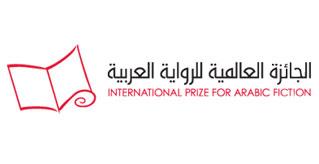Interview with shortlisted author Khalil Alrez
14/04/2020

We speak with shortlisted author Khalil Alrez about his novel The Russian Quarter.
Where were you when the shortlist was announced and what was your reaction?
I was at home, but of course, I did not find out by coincidence. I was very keen on my novel reaching the shortlist. I was waiting with diminishing patience for the announcement. I learned the names of the six novels at the time of the announcement. Indeed, I was very happy that my novel was amongst them.
Your writing style mixes fantasy with reality. What drew you to this style?
There are many factors that go into formulating the style of a writer, I am not aware of them all, but perhaps most important is education, life experience, and inherent personal preferences. However, despite that, I make sure that what you call fantasy is not of the impossible kind in my novels. In the sense that, I do not completely give up the logic of reality when I sit down to write.
How did you build the world of The Russian Quarter? And how did you avoid being too direct or too ambiguous?
Sometimes reality is stranger than fiction. I want to say that reality itself sometimes flouts its typical rules, let alone fiction. The novel creates a provisional world, not a realistic one, but it benefits from and flouts the rules of reality at the same time. A writer’s experience in striking a balance in this delicate game keeps him from being too direct or too ambiguous at the same time. Some writers are too realistic, which is why they easily and impulsively write too directly. They consider writing to be a weapon. For them it is a means to other ends, apart from writing. For me, my only aim is to write entertaining, elegant modern novels, regardless of the topic.
Some animals evoke certain connotations in the reader’s mind. Dogs for example are known for symbolizing loyalty, whereas giraffes do not really have a particular connotation, perhaps because they are not as common in our lives. Is that why you chose a giraffe to be one of the main characters in the novel?
When I first started writing this novel, I had a clear idea of the closing scene. I needed a beautiful animal that would lead the “revolution” of the Russian Quarter to the heart of the city after burying Essam. It could have been a purebred mare. But for some unknown reason, I thought of a giraffe and decided on it without hesitation. Perhaps it was a purely formal choice at first, since the grandeur and beauty of the giraffe served the closing scene well, and so did its murder in the last lines in the Umawyeen square, the largest and most important square in Damascus. Then later on, when I read the information I had about giraffes in Arabic and Russian and integrated it within the narrative, I realized it was a good choice.
Were you surprised by any readings of the novel? How would you like the novel to be read?
In journalism, reviews are not always professional. Some suffice to write a summary of random scenes from the novel along with some ready-made clichés. Some add to the novel what does not exist so that it suits their political views. But on the other hand, there are good and diverse reviews, written by professional writers and critics that have focused on the narrative qualities in The Russian Quarter, from different points of view. These are few, naturally. What I write might appear to a certain extent different from the typical taste of the average reader. Here I do not insult the readers’ taste, since it has been promoted for many years by big publishing houses and good writers who have been leading the Arabic literary scene. It is absurd to say what my ideal reader would be like, but someone familiar with other arts in addition to the art of fiction, such as theatre, cinema, visual art, and poetry will find pleasure in The Russian Quarter and in my fiction in general.
Why the Russian Quarter – and the Russian characters – although the novel has almost no political references?
Are you sure there are no political references? In any case, I do not really stress them, because they are not of the greatest importance to my novel. The Russian Quarter is a fictional setting that I have been building in four novels: Where is Safed, Youssef?, In Equal Measure, The Switch and The Russian Quarter. Maybe I will come back to it in my next novel, maybe not. The fictional setting brings together real streets from different cities in which I lived. As for the Russian characters in the novel, I have met many of these in real life. I lived and worked with Russians for nearly ten years in Moscow. And afterwards, I had good relationships with some who lived in Damascus for one reason or another.
Which authors influenced you as a novelist?
I learned how to write a novel from many writers of the nineteenth and twentieth centuries, in addition to playwrights before and after that, from many nations. For example, Turgenev, Chekhov, Flaubert, Proust, Fitzgerald, Faulkner, Conrad, Cortazar, Kundera and Saramago.
What are you reading now? Has your reading list been influenced by the Coronavirus stay at home recommendations?
I recently found new translations for The Adventures of Tom Sawyer and The Adventures of Huckleberry Finn by Mark Twain. I am almost done with the first and will begin the second today. The lockdown has not affected my reading or daily activities, as even without it, I only leave home when it is necessary.
